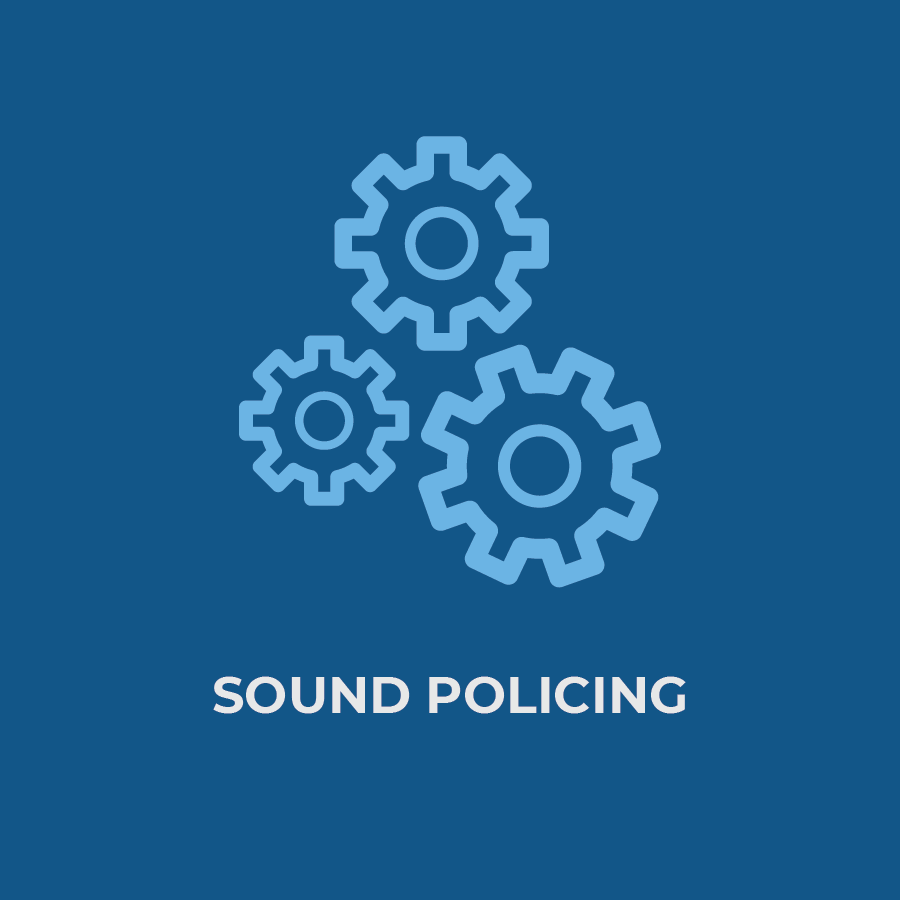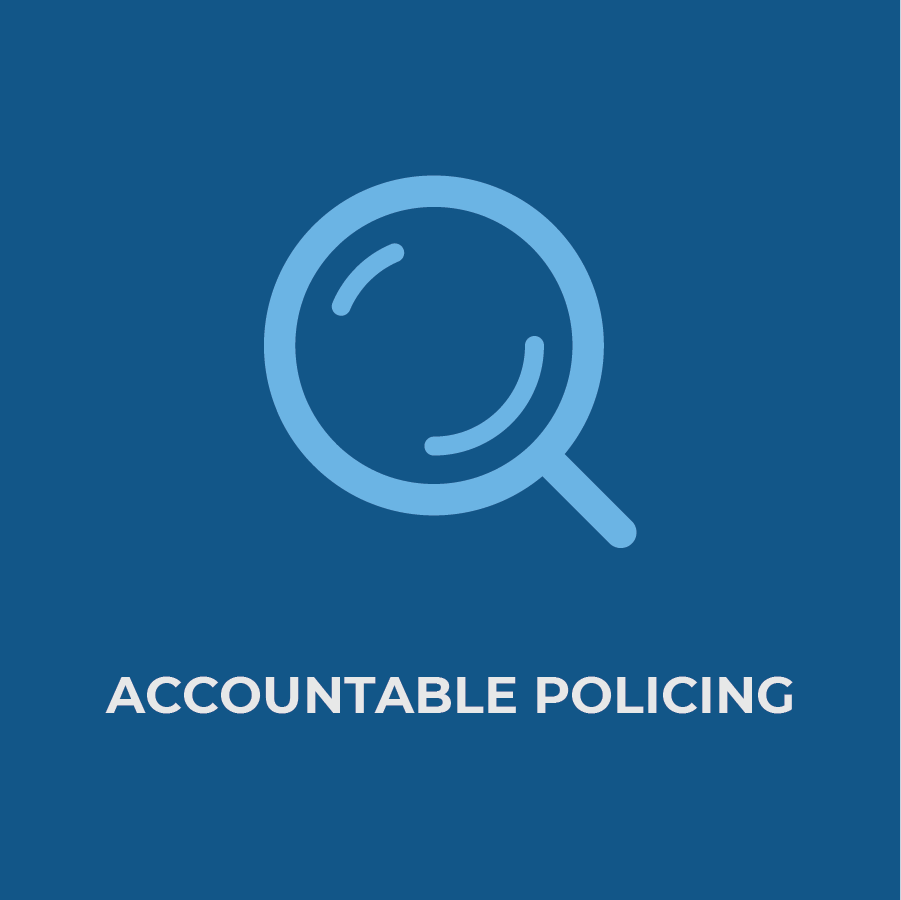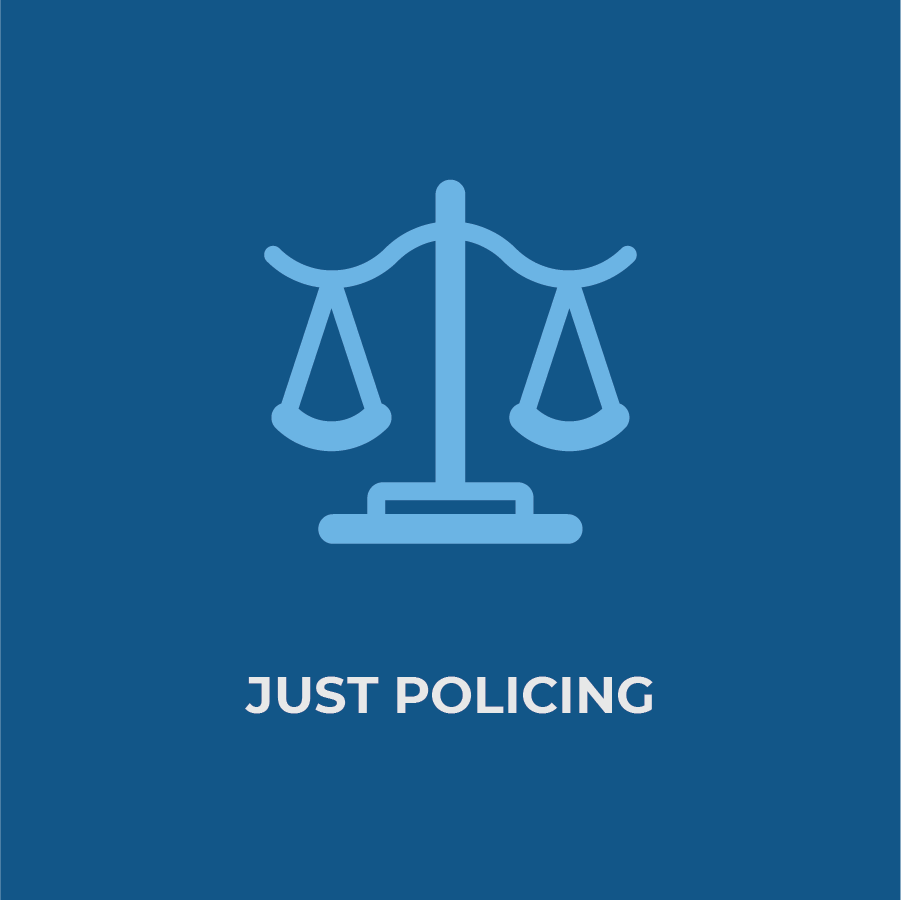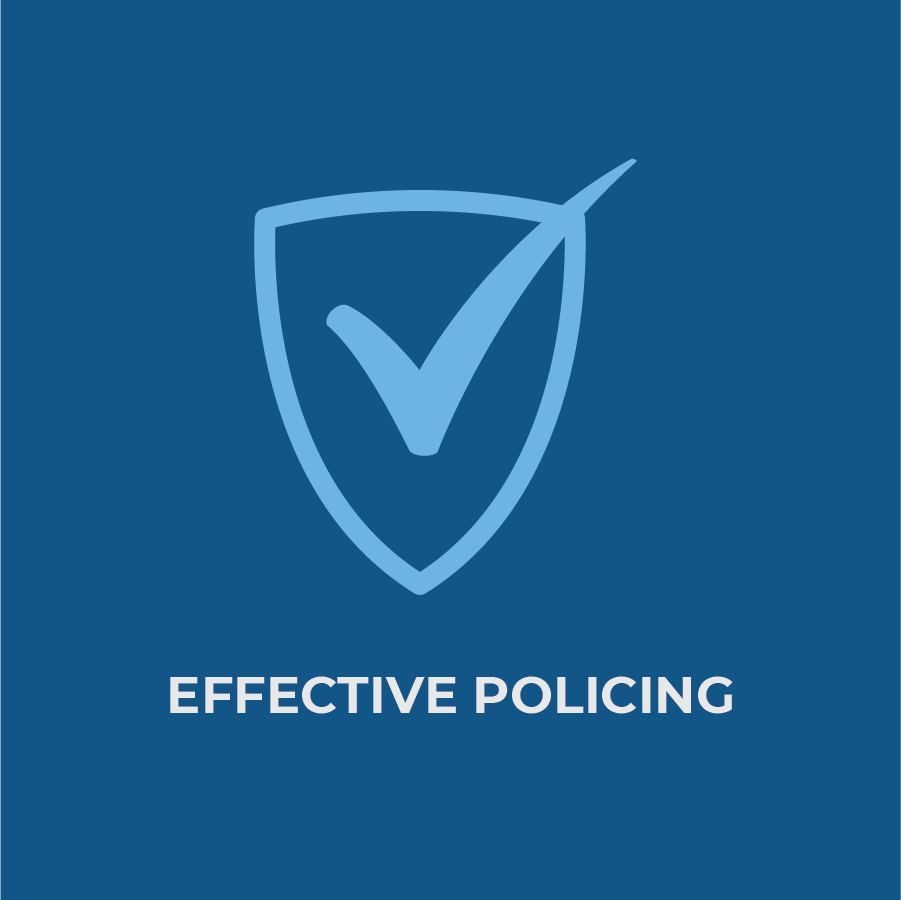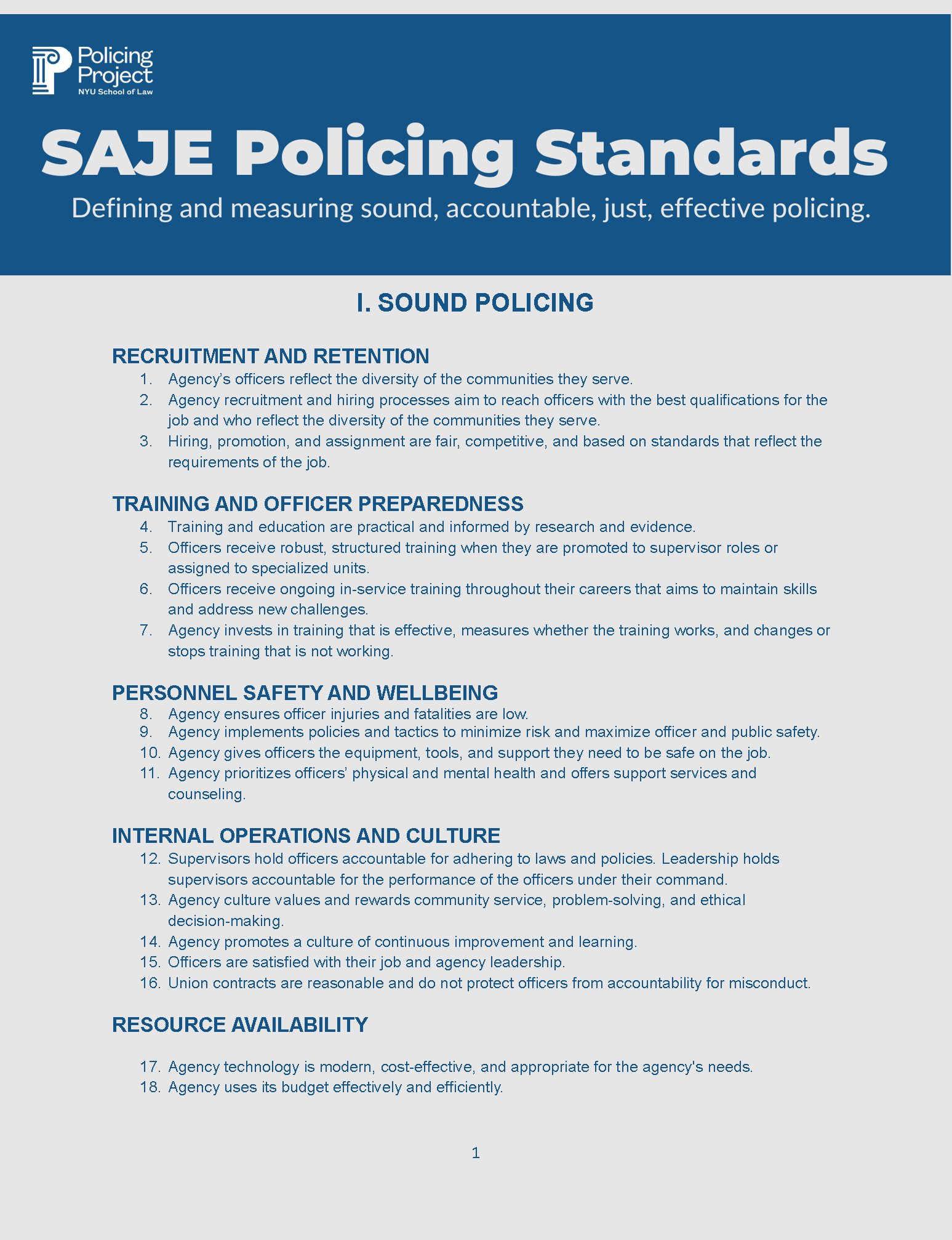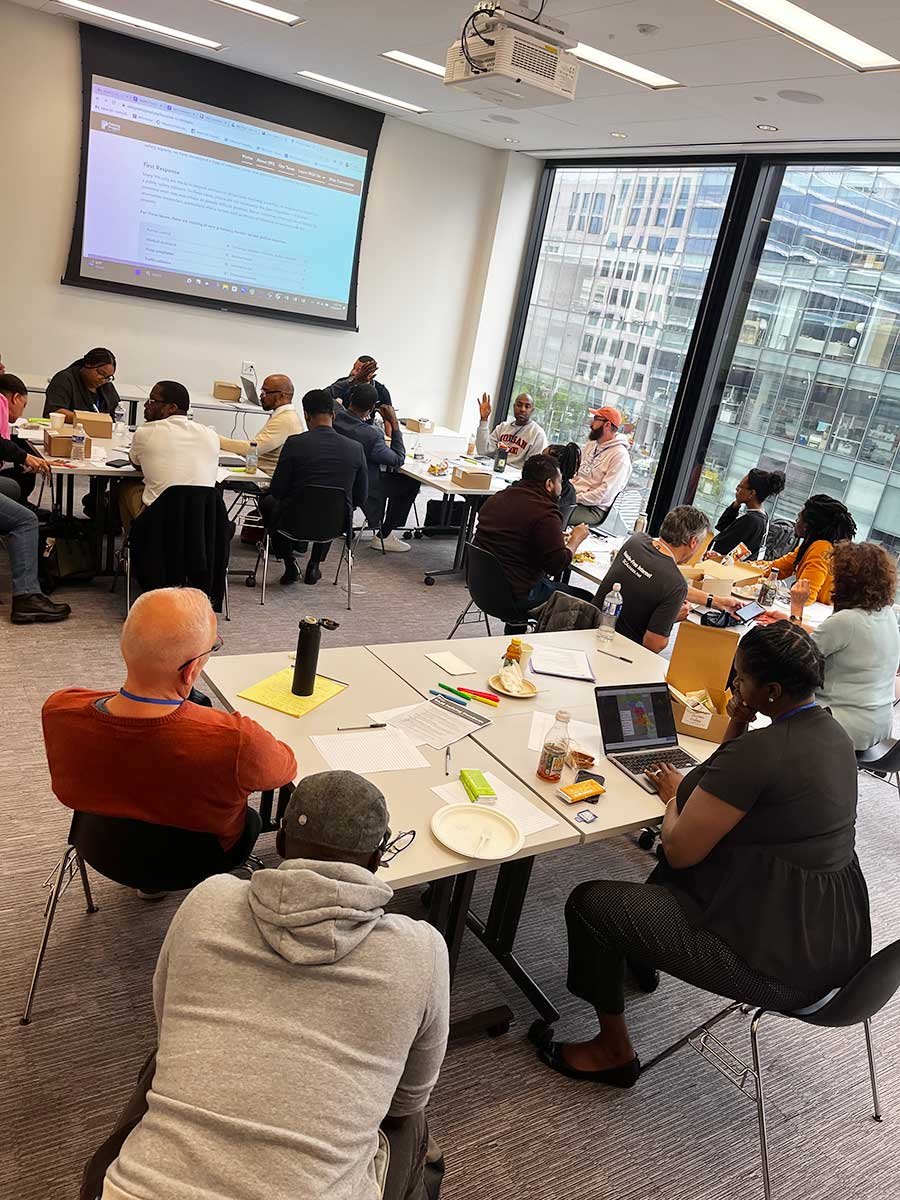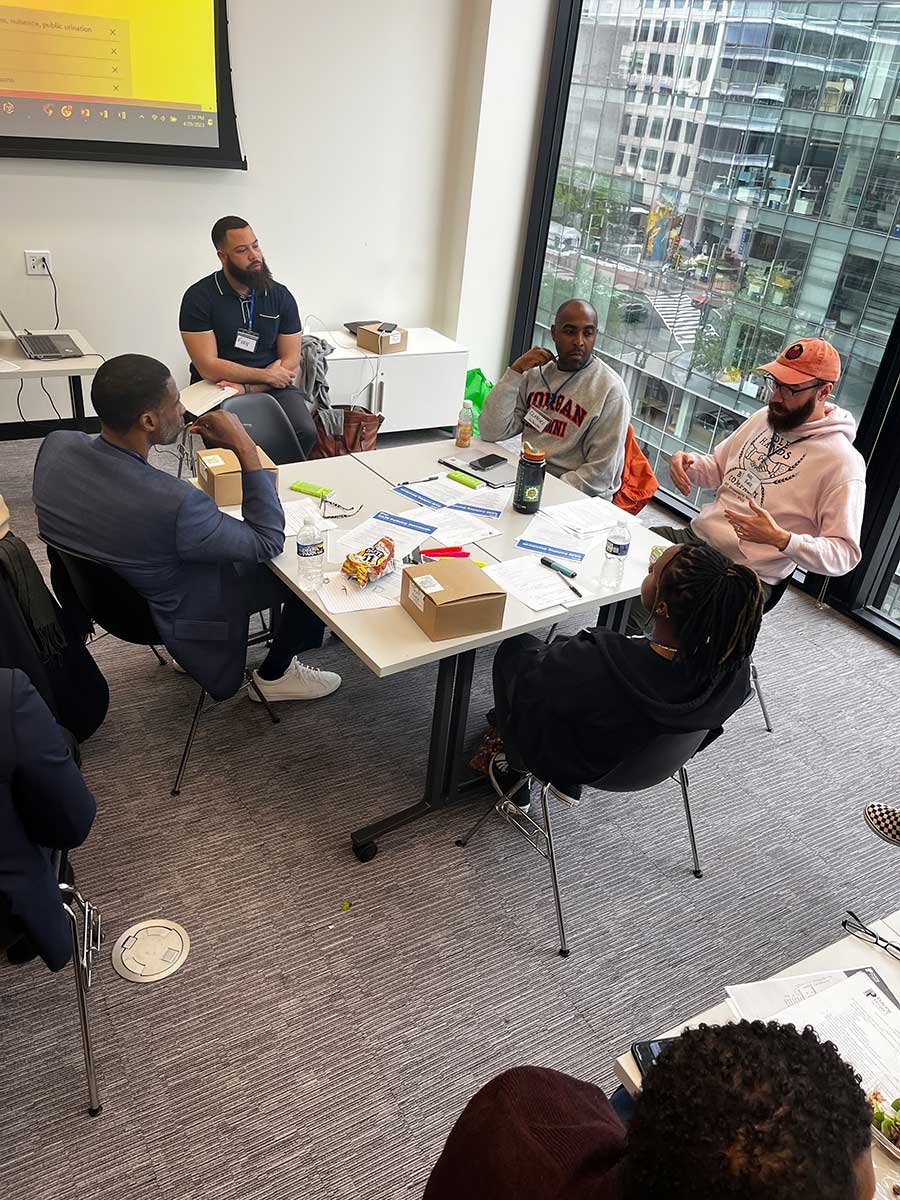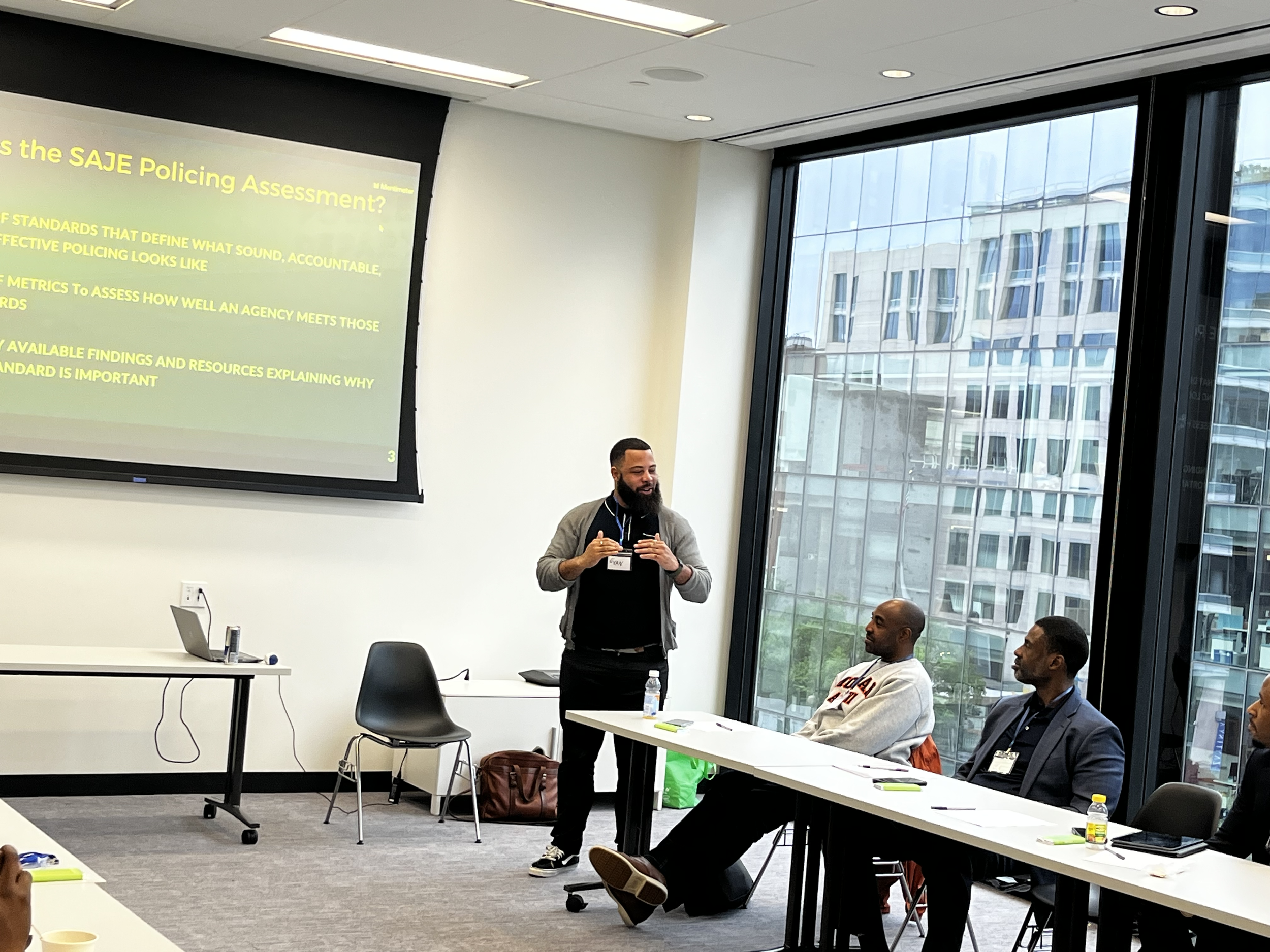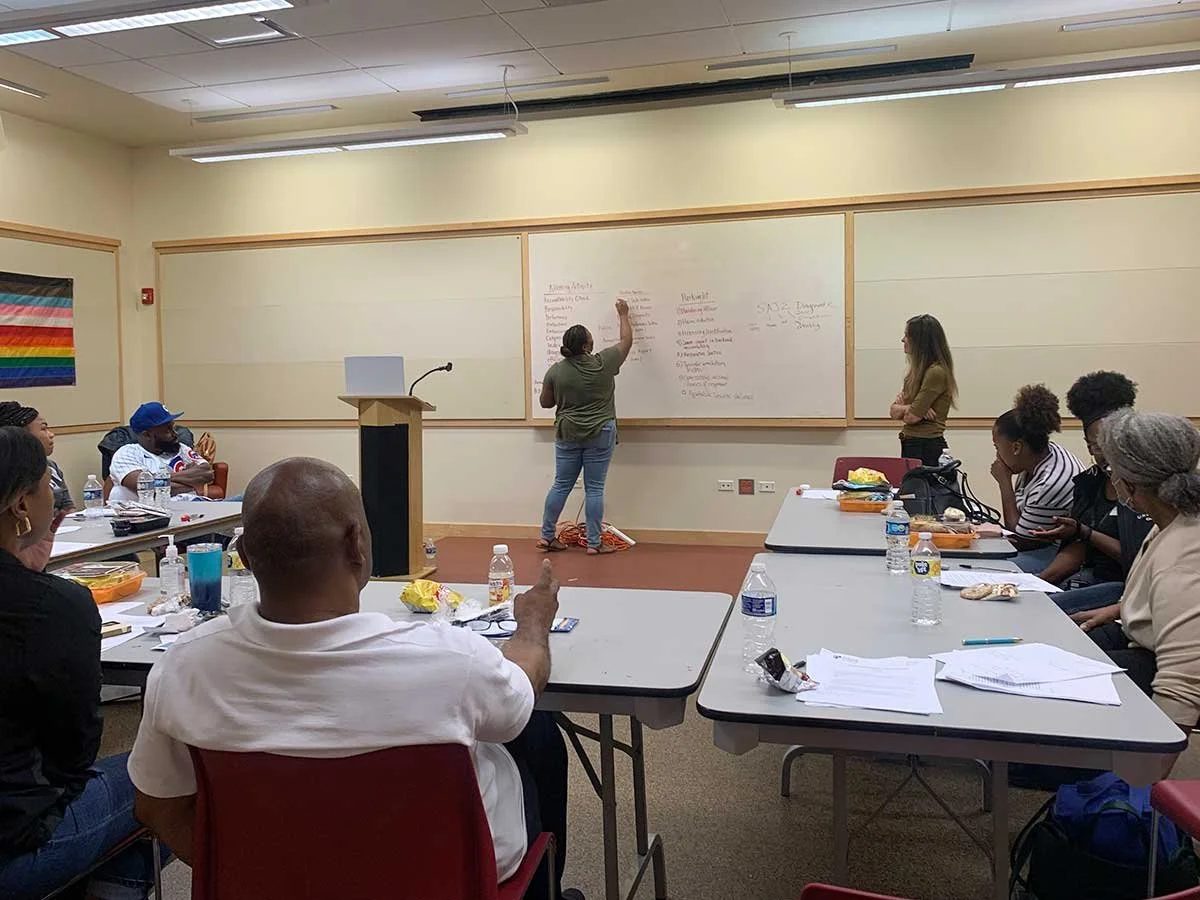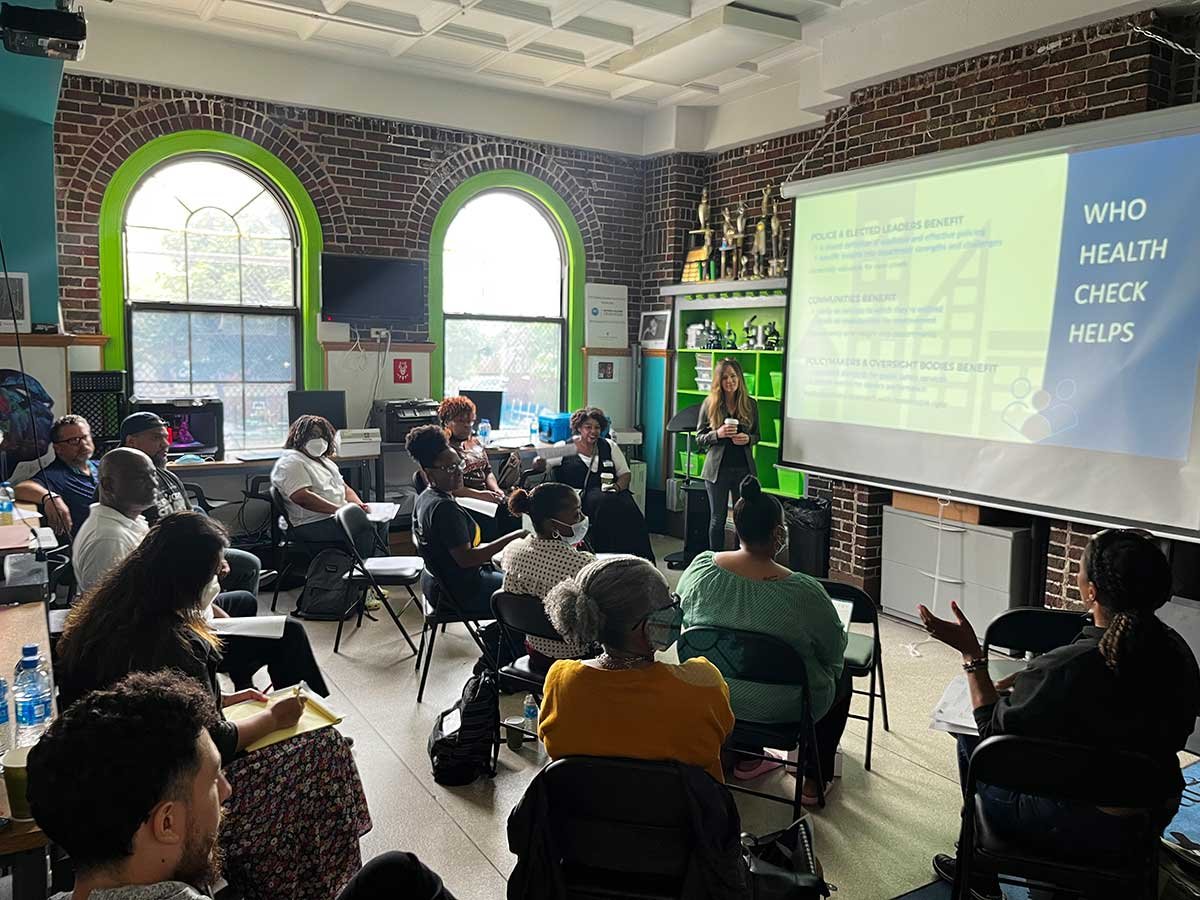SAJE POLICING ASSESSMENT
Defining and measuring sound, accountable, just and effective policing
What is the SAJE Policing Assessment?
The SAJE Policing Assessment is a tool designed to define and measure the characteristics of a sound, accountable, just, and effective policing agency. This much-needed resource helps police leaders and agencies, municipal leaders, and the communities they serve understand agency performance across 100 critical metrics.
-
We asked police chiefs across the country the simple question: “How do you know whether you’re doing a good job?” The answer was overwhelmingly, “We don’t.” The lack of national standards and conflicting notions of what police could and should do for their communities, complicates things. And even if we could agree about what “good” policing is – how would we determine whether an agency is measuring up?
In the absence of consensus, many jurisdictions turn to insufficient proxy measures to understand police performance, like crime rates or the number of citizen complaints. These proxies tell only a very narrow – sometimes inaccurate – part of the story. If we are to meet public demands for fundamental change around policing, policing agencies and the communities they serve need to know: what are we working towards, and how will we know when we get there?
We developed the SAJE Policing Assessment to answer those critical questions.
-
DEFINE
First, we developed much-needed standards for sound, accountable, just, and effective policing through rigorous application of a number of disciplines to what policing should look like ideally: constitutional law, civil liberties, racial equity, social science, democratic accountability, prior and current reform strategies, and most important – the perspectives of community and police leaders. A full list of our standards for safe, accountable, just, effective policing is available here.
Sound Policing: Is the policing agency well-managed? Assessing recruitment and retention strategies; training quality and officer preparedness; personnel safety and wellbeing; internal operations and culture; resource efficiency, sufficiency, and appropriateness; and relevant data collection.
Accountable Policing: Is the policing agency accountable to the communities it serves? Assessing organizational transparency and data availability; democratic governance and oversight; officer accountability and discipline; and relevant data collection.
Just Policing: Is the policing agency respectful of civil liberties, equitable, and racially just? Assessing uses of force; stops, searches, and seizures; demonstration responses and protection of First Amendment rights; investigative procedures; and relevant data.
Effective Policing: Is the policing agency keeping the communities it serves safe? Assessing community engagement and the co-production of public safety; policing and response strategies; responses to individuals in crisis and protection of individuals susceptible to victimization and abuse; and relevant data.
———
MEASURE
Next, we developed clear metrics to evaluate agency performance under each standard. At present there are 100 metrics in the SAJE Policing Assessment.
———
REPORT AND SCORE
Using our reporting tool, the agency addresses each metric by answering a simple yes/no question. The agency then uploads evidence to support its answer—such as policies, training manuals, and general orders.
Agencies don’t undergo the SAJE Assessment alone. A neutral third-party evaluator assists agencies in completing the tool and validates the results. The agency receives a preliminary report that includes its scores in each pillar and gets the chance to improve on the evidence to support its answers. The agency then gets a final report, which includes areas of commendation and suggestions for improvement.
-
Police & Elected Leaders will receive a shared definition of equitable and effective policing and specific insights into police agency strengths and challenges. This is especially valuable for new chiefs.
Communities will receive clarity on services provided and how community members should be served/treated, details on opportunities for improvement for their police agency, and transparency and insight into policing agencies.
Policymakers & Oversight Bodies will receive consistent standards for public safety services, defined metrics for agency performance, and a shared understanding of opportunities for improvement.
-
We are in the process of piloting our assessment with several policing agencies, including the Bellevue (Nebraska) Police Department; Las Vegas Department of Public Safety; and Washtenaw County (Michigan) Sheriff's Department.
We have completed pilot assessments in Tampa FL; Tucson AZ; and Washington DC. The Washington DC Metropolitan Police Department SAJE Assessment is available below.
We are continuing to administer the tool to agencies across the country. The results of these assessments will be publicly available and can be used by municipal leaders, communities, and agencies themselves to inform priorities for improvement.
-
We are grateful to the Joyce Foundation and the Microsoft Justice Reform Initiative for supporting the development of the SAJE Policing Assessment.
SAJE Policing Team
Barry Friedman, Founding Director
Dr. Aili Malm, Senior Research Fellow
Maureen McGough, Chief of Strategic Initiatives
Farhang Heydari, Legal Director
Mecole Jordan-McBride, Advocacy Director
Chris Magnus, Senior Advisor for Public Safety
Matthew Barge, Senior Policing Fellow
Dr. Carlena Orosco, Evaluator
———
Community & Practitioner Vetting
The Policing Project, through our work on the Chicago Neighborhood Policing Initiative, hosted a series of vetting meetings with Chicago community advocates. We then hosted a vetting meeting with Washington, D.C. community advocates. One of our highest priorities is ensuring agency results inform community advocacy efforts, both in defining the standard of service communities should expect and assessing the extent to which their department measures up. Our Chicago and Washington D.C. community conversations not only explored how to maximize the utility of this tool, but also included a deep dive into our metrics. We are committed to ensuring this tool captures what communities – especially those most impacted by police activities – care about most. These deeply thoughtful discussions informed modifications to our metrics and processes, and we are in the midst of replicating these discussions in other jurisdictions.
We also vetted the SAJE concept and early content with a robust national group of public safety experts and practitioners from a variety of relevant professional fields, including current and former policing officials.
Chicago Community Advisors
Edwina Hamilton, District 15
Michael Ewing, District 4
Tiffany Lyles-Williams, Team Work Englewood
Tracie Worthy, District 10
Anna Mangahas, One Northside
Apratha Boxton, District 11
Artinese Myreck, Live Free Illinois
Alees Edwards, District 11
Tifanny Smith, NHS Chicago
Tametrius Files, Team Work Englewood
Kevin Cherep, Chicago Youth Centers
Remel Rutledge, District 15
Angel Jones, District 11
Amy Cross, District 18
———
Subject Matter Expert Advisors
Dr. Geoffrey Alpert, Professor, University of South Carolina
Lara Al-Sakar, Associate Director, Public Safety Lead, Accenture
Matthew Barge, Senior Policing Fellow, Policing Project
Dr. Shon Barnes, Chief, Madison PD
Capt. Jason Bruder, Charleston PD
Jim Bueermann, Chief (ret.), Redlands PD
Ralph Clark, CEO, Shotspotter
Tara Calabro, Deputy Inspector, NYPD
Dr. Gary Cordner, Academic Director for Education and Training, Baltimore PD
Dr. Jake Cramer, Senior Researcher, RTI International
Ron Davis, Director, U.S. Marshals Service
Dr. Brandon del Pozo, Chief (ret.), Burlington PD
Dr. Eric Dlugolenski, Assistant Professor, Central Connecticut State University
Philip Eure, Inspector General, NYPD
Adam Gross, Executive Director, Chicago Community Commission for Public Safety and Accountability
Dr. Cory Haberman, Associate Professor, University of Cincinnati
Rachel Harmon, Professor, University of Virginia School of Law
Ben Horwitz, Co-Founder, AH Datalytics
Jeremiah Johnson, Assistant Commissioner, NYC Department of Corrections
Matt Johnson, former President, LA Police Commission
Eric Jones, Deputy County Executive, Public Safety and Justice, County of Sacramento
Mecole Jordan-McBride, Advocacy Director, Policing Project
Zoe Lambourne, former Managing Director, Accenture
Terence Lynn, Deputy Division Director, Law Enforcement, CSG Justice Center
Chris Magnus, Senior Advisor for Public Safety, Policing Project
Ganesha Martin, VP of Public Policy and Community Affairs, Mark43
Dr. Kyle McLean, Assistant Professor, Clemson University
Dr. Renée Mitchell, Principal Research Scientist, Evidence Based Policing, Axon
Syvlia Moir, Undersheriff, Marin County Sheriff’s Office
Dr. Justin Nix, Associate Professor, University of Nebraska, Omaha
James Nolette, Assistant Chief, Fayetteville PD
Lt. Nicole Powell, New Orleans PD
Megan Quattlebaum, Director, CSG Justice Center
Sean Smoot, Partner, 21CP Solutions
Darrel Stephens, Chief (ret.), and former Executive Director, Major Cities Chiefs Association
Maj. Wendy Stiver (ret.), former Director of Research & Procedural Justice, Charleston PD
Seth Stoughton, Professor, University of South Carolina School of Law
Meme Styles, President and Founder, Measure Austin
Nina Vinik, Founder and Executive Director, Project Unloaded
Robert Wasserman, Distinguished Senior Fellow, Policing Project
Jody Weis, former Associate Director, Accenture
““The SAJE Assessment represents an important step forward in advancing accountability, transparency, and trust in policing. As a pilot agency, the Tucson Police Department embraced this opportunity to not only identify areas for improvement but also validate and uncover areas of strength through a thorough review of 100 metrics. The administration of the assessment was straightforward, and the results were presented in a concise report.
“The SAJE framework offers more than just a snapshot of an agency’s performance—it serves as a roadmap for meaningful, ongoing progress. I encourage any agency interested in honest, practical reflection to take advantage of this valuable tool, as it provides a pathway to build stronger, more effective relationships with the communities we serve.” ”
SAJE Assessments
““The Tampa Police Department is committed to ensuring our policing practices are sound, accountable, just, and effective. The NYU SAJE Policing Assessment process provided us with a valuable framework to measure our performance and identify areas for improvement. By embracing this assessment, we aim to build stronger trust and collaboration with the community we serve. I would highly recommend this process to any police agency desiring a true and actionable assessment.””
Pictures from our DC and Chicago Community Engagements
Please reach out to SAJE@policingproject.org with comments, questions, suggestions, and to receive periodic updates on our progress.

